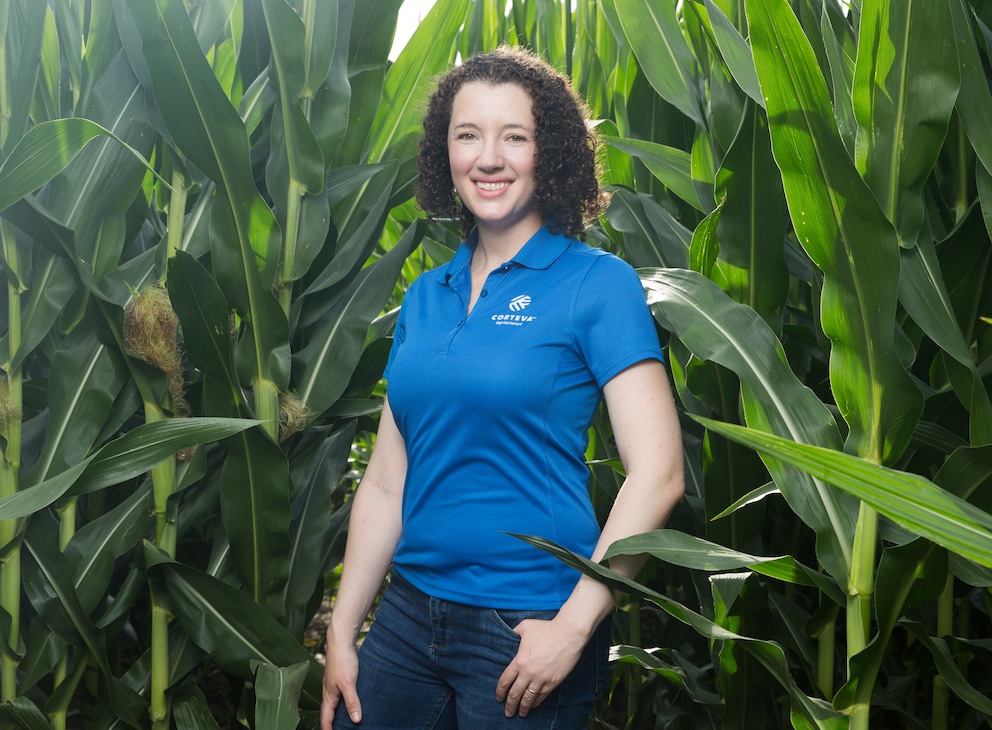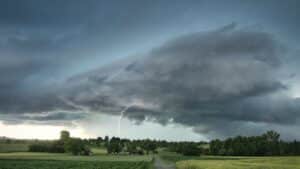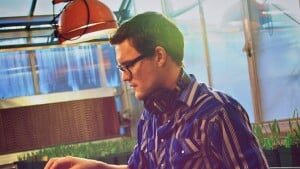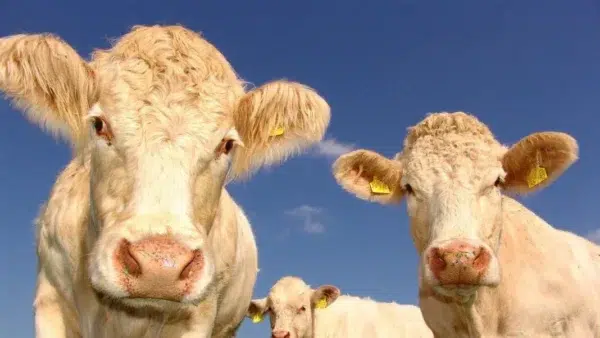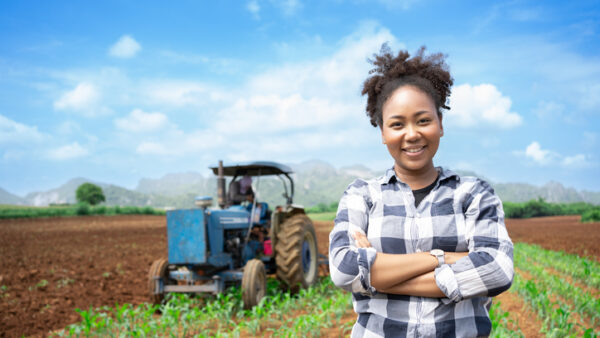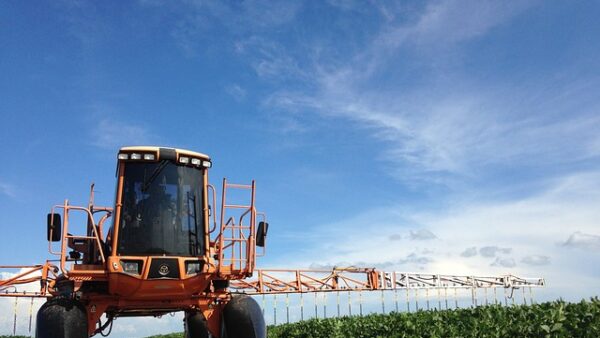Looking to make an impact on the world, Emily Combs Ziemke jumped in head first to learn about plant breeding. Now, as the 2019 Future Giant, her life revolves around the seed industry.
This year’s 2019 Future Giant of the Seed Industry is no stranger to hard work or labors of love. Emily Combs Ziemke looks to place herself in as many different capacities as she possibly can to better our world.
Born in Cleveland, Ohio, Ziemke does not come from an agriculture background, and it wasn’t where she thought she’d ever end up.
“This was a pretty big jump for me when I came into the seed industry,” she recalled. “I was really interested in genetics and wanted to have a job where I felt like I was making an impact on the world.”
“When I looked at the list of people who have received the award in the past, it was really exciting to see the breadth of the seed industry they spanned,” she said. “I think it’s a recognition of how broad the seed industry is and I’m really excited I get to contribute to part of it. It’s a little intimidating to be honest. I don’t necessarily think of myself as a future giant. I just think of myself as someone who is really passionate about the work that I do, and I really enjoy collaborating with others.”
However, while Ziemke might be humble, plenty of co-workers, mentors and peers were excited to brag about Ziemke and her achievements.
“Some might call Emily the ‘Doogie Howser’ of the plant breeding world,” said Julie Deering, Seed World’s editor. “She has done work for the likes of the Samuel Roberts Nobel Foundation and CIMMYT.”
“Emily does not back down from any challenge and emotes positivity throughout her interactions with others,” said Matthew Smalley, director of North America Corn Breeding at Corteva Agriscience. “She is a valued and sought-after teammate, regardless of the project.”
Ziemke joined Corteva Agriscience in Mankato, Minn., in 2013. As the company’s North American Corn Technology lead, she applies cutting-edge science to improve the quality of genetic data and increase the diversity within the company’s corn germplasm.
However, Ziemke’s work not only includes working day-to-day with Corteva — she also serves on numerous committees, including the National Association of Plant Breeders (NAPB) and GreenSeam.
“I have had the pleasure of interacting with Emily as a member of the NAPB, through the officer rotation of the NAPB Communications Committee and through the NAPB Executive Committee,” said Wayne Smith, professor at Texas A&M and past president of the NAPB. “She has been an absolute pleasure to work with; always energetic and professional, dependable to bring ideas to the discussion and always willing to do more than required. I believe that Dr. Ziemke is an energetic, aggressive and accomplished young plant breeder who is poised to be a major player in plant breeding and in the seed industry.”
But her work doesn’t stop there. She’s a volunteer for Farmamerica, and she has also been involved in the development of the Excellence in Breeding, Module 2 to help plant breeding organizations, such as the International Maize and Wheat Improvement Center (CIMMYT), deploy the most relevant technologies for improved breeding.
As an undergrad at Cornell University, Ziemke worked for a wheat breeder. It was at that point when she really became interested in the seed industry.
“We were working on a trait called preharvest sprouting, which is where the wheat sprouts while it is still in the field,” she said. “It is quite unsuitable for flour production, so getting to work on research that would have such a real-world impact really caught my attention and energy. That led me to do some internships and eventually attend graduate school at the University of Minnesota in the Twin Cities, where I worked on corn breeding for the first time with my advisor, Rex Bernardo.”
It was six years ago when an opening became available at Corteva in Mankato. Ziemke had completed her PhD and began working there as a corn breeder. It was just a year ago when she transitioned from the breeding role to the North America technology lead role.
“In my current position, I work with all of our discovery breeders in North America corn to implement new technologies for the field breeding programs. This could be something like how we are going to use data collected from an unmanned aerial vehicle, or it could be how we are going to combine the genetic data and the phenotypic data that we collect into actionable insights for our breeders.”
Volunteering and Educating
Not coming from an agriculture background, no one is more surprised than Ziemke herself about where her career path has taken her. She does recall that, as a child, she had always been really fascinated by seeds.
“I grew my first garden when I was in middle school in Maryland, and I was really upset when I had to move and leave it. I had invested so much into all the perennials. I have always been really amazed by seeds and genetics, so even though I didn’t necessarily expect that I’d end up in the technology role with Corteva Agriscience, I’ve always been really passionate about seeds and the potential that they represent.”
In addition to her position at Corteva, Ziemke works with a few local groups such as GreenSeam, which helps to advocate for agriculture in southern Minnesota.
“Through them, I became connected to Farmamerica where we do agricultural education and advocacy groups for middle schoolers primarily,” she said. “The big activity I do with the kids is extract DNA from strawberries. I always kind of figured that the students wouldn’t be very excited about this, but they’re amazed every time and always want to take the DNA home. They often ask if eating the DNA will turn them into a strawberry. It will not, just for the record.”
Ziemke also serves on the Advocacy Committee for the National Association of Plant Breeders. As incoming chair for the 2019 to 2020 season, she stresses the importance of getting the word out about the seed industry.
“This is not necessarily something the general public has a really strong understanding and connection to,” she continued. “Everyone eats, but if you ask people where their food comes from, they will say a grocery store. They don’t necessarily think about all the steps and the chain that it takes to get the food onto their plates.”
Ziemke is also very excited about a collaboration that Corteva has been involved in that is trying to bring more modern breeding practices to international agricultural centers.
“I’ve had the opportunity in the last year to work with their nodule 2, which is about designing breeding programs. That has been a really exciting place for me to get to contribute, and I also get to learn from other people working in very different agronomic cropping environments and a different set of challenges.”
When asked how she juggles all of her responsibilities, Ziemke said she has become really good at multi-tasking and prioritization — which is probably an understatement.
“Working with the local school children is really a labor of love,” she said. “I don’t actually remember this, but when I was in high school, we had a female scientist come in and talk. My mom remembers this because it made a big impact on her when I talked about it. That was probably the first time I really thought I could become a scientist. So, I try to get myself out there to make time for activities like that.”
In what she foresees in the field over the next few years, Ziemke said there will continue to be exciting innovations in technology.
“In the last decade or so, we’ve gotten really good at connecting the genotypic data we have with the phenotypic data we collect in the field. And now, we are getting more and more of those types of data. We are getting better phenotypic data from drones and from weather stations, plus we can get more precise and cheaper genetic data. I think the exciting innovations will be how we put that all together into actionable insights will help us make better seed products for the farmers and for consumers.”
In her limited spare time, Ziemke still doesn’t like to let go of her newfound agriculture roots. “Well, I really like to garden. I’m an avid gardener, so when I run into friends in the seed industry who do vegetable breeding, I’m always after them for tips on the hot new varieties. Other than gardening, I like to exercise a lot and I really enjoy cooking. I guess a lot of my life is food related.”
If you’d like to nominate a Future Giant of the Seed Industry, please email Alex Martin.


